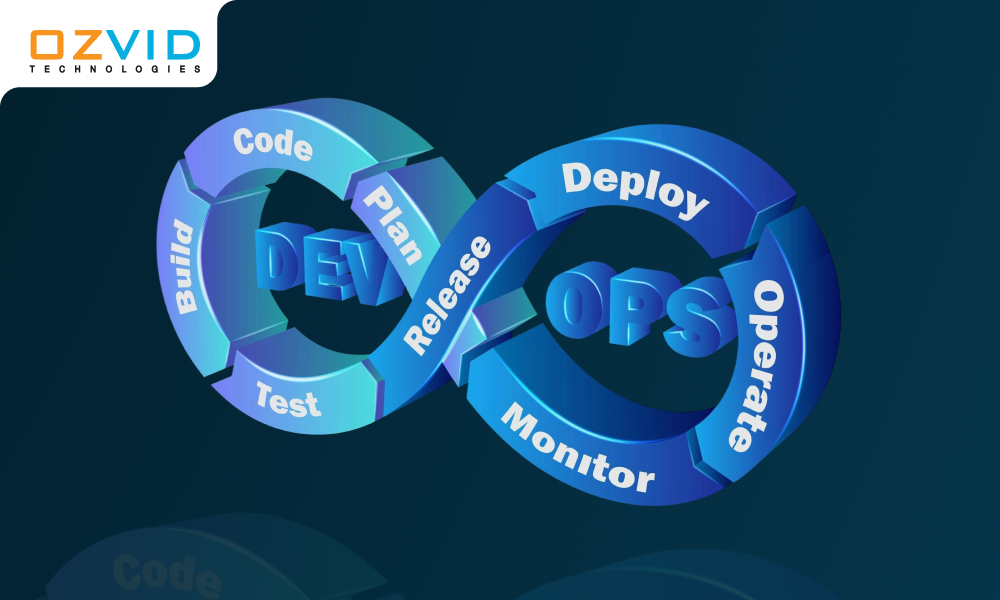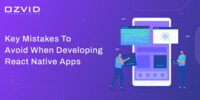- Feb 02, 2026
Share this post on:

In today's fast-paced digital era, businesses constantly strive to accelerate software delivery while maintaining quality and reliability. The adoption of DevOps, a set of practices that combines software development (Dev) and IT operations (Ops), has revolutionized how companies build, test, and release software. However, successfully implementing DevOps requires expertise, resources, and ongoing management that many organizations find challenging to maintain in-house. This is where DevOps outsourcing plays a crucial role, enabling businesses to leverage external specialists to drive efficiency, innovation, and scalability.
Key Takeaways
DevOps outsourcing helps businesses accelerate software delivery while ensuring quality and reliability.
AI integration enhances automation, predictive monitoring, and code quality in outsourced DevOps.
Choosing the right DevOps partner requires evaluating technical expertise, communication, scalability, and cost transparency.
Core components of DevOps outsourcing include CI/CD pipelines, Infrastructure as Code, cloud optimization, monitoring, and workflow automation.
Costs vary based on engagement models, project complexity, and required expertise; transparency ensures better ROI.
Partnering with a trusted DevOps outsourcing provider like OZVID Technologies enables innovation, efficiency, and long-term growth.
Understanding DevOps and Its Importance
DevOps is a collaborative approach aiming to shorten the software development lifecycle and provide continuous delivery of high-quality software. It integrates development, quality assurance, and operations through automation, monitoring, and rapid feedback loops. The DevOps software development process emphasizes continuous integration, continuous deployment (CI/CD), infrastructure as code (IaC), and automated testing.
The advantages of adopting DevOps include faster time-to-market, enhanced collaboration, better product quality, and improved customer satisfaction. However, to realize these benefits, organizations often require significant investment in skill development, tools, and process optimization.
Role of AI in DevOps Outsourcing
Artificial Intelligence (AI) is becoming integral in augmenting DevOps software development processes. AI-powered tools offer intelligent automation, predictive analytics, and anomaly detection to improve overall system reliability and accelerate development cycles.
When businesses outsource DevOps services, they also gain exposure to cutting-edge AI technologies implemented by DevOps consulting companies. This includes:
Predictive Monitoring: AI models analyze logs and metrics to forecast system failures or bottlenecks.
Automated Root Cause Analysis: AI algorithms help quickly diagnose issues and suggest remedies.
Code Quality and Security: Machine learning-based tools scan code continuously for vulnerabilities and quality issues.
Optimized Resource Use: AI-driven autoscaling ensures efficient resource consumption without service interruptions.
Integrating AI into DevOps outsourcing engagements thus enables businesses to achieve higher automation levels, reduce manual errors, and make data-driven decisions.
How to Choose the Right DevOps Outsourcing Partner
Choosing the right DevOps outsourcing partner is a critical decision that can significantly impact the success of an organization's digital transformation and software delivery capabilities. Here are comprehensive guidelines to help businesses select the most suitable DevOps consulting company or software development partner:
Define Technical Requirements: Before starting the search, organizations should clearly define their DevOps goals—whether it's accelerating software delivery, improving collaboration, scaling infrastructure, or integrating AI in DevOps. A clear understanding of specific needs and pain points will guide the evaluation process and ensure alignment with the partner's capabilities.
Assess Technical Expertise: Look for a partner with proven expertise in DevOps consulting and the software development lifecycle. They should demonstrate experience with relevant technologies, cloud environments, and automation tools such as Jenkins, Docker, Kubernetes, Terraform, and AI-driven analytics platforms. Industry-specific knowledge is valuable for addressing unique challenges and regulatory requirements effectively.
Review Portfolio and Client References: Evaluating the partner’s past projects and case studies offers insights into their ability to deliver quality results. Request client testimonials and references to verify their professionalism, reliability, and suitability for your project size and complexity.
Emphasize Communication and Collaboration: Successful DevOps outsourcing depends on transparent, frequent, and effective communication. Ensure the partner employs robust communication channels and has a culture that promotes collaboration. This mitigates risks associated with remote work or different time zones.
Evaluate Quality Assurances: Quality assurance is vital for delivering reliable software. Verify that the prospective partner employs rigorous testing methodologies integrated into the DevOps pipelines. Security should be a priority with adherence to compliance standards and DevSecOps principles, ensuring that vulnerabilities are addressed early in the development process.
Consider Scalability: The partner should offer scalable resources to accommodate evolving business needs and project growth. Flexible engagement models such as staff augmentation, fixed-price projects, or Build-Operate-Transfer (BOT) approaches allow smooth adjustments over time.
Cost Transparency: Evaluate the pricing models and ensure transparency about all costs, including any hidden fees for maintenance or additional services. Balance cost considerations with quality and value delivered to avoid compromising on critical aspects.
Check Risk Management: Review the vendor’s ability to manage risks and adhere to delivery timelines. A clear exit strategy, knowledge transfer plans, and contingency measures are essential to maintain business continuity and minimize vendor lock-in.
Long-Term Partnership Potential: DevOps implementation is a collaborative and ongoing process. Choose a partner whose values and work ethics align with your organization’s culture for a productive long-term relationship.
Core Components of DevOps Outsourcing
In the evolving landscape of software development, DevOps outsourcing has become an essential strategy for businesses aiming to accelerate delivery, improve quality, and optimize operational efficiency. However, successful DevOps outsourcing goes far beyond just hiring an external team; it entails a structured partnership encompassing a broad spectrum of integrated components across the software delivery lifecycle. Here are the core components that form the foundation of effective DevOps outsourcing engagements:
1. DevOps Outsourcing Models
Choosing the right outsourcing model is the strategic starting point for any DevOps initiative. Common engagement types include:
DevOps Consulting: External experts provide strategic guidance, assessments, and knowledge transfer to accelerate transformation without full-time commitments.
Staff Augmentation: Skilled DevOps professionals integrate into your existing teams to fill expertise gaps or manage specific automation tasks.
Dedicated Teams: Fully managed outsourced teams own and operate designated infrastructure, pipelines, and automation workflows as an extension of your organization.
Selecting the appropriate model aligns resources with your business needs, balancing control, scalability, and budget.
2. CI/CD Pipeline Design and Management
Continuous Integration and Continuous Delivery (CI/CD) pipelines automate the process of building, testing, and deploying code changes. Outsourced DevOps teams design, implement, and maintain pipelines tailored to your technology stack and release strategy, incorporating:
Automated build and test sequences
Deployment strategies like blue-green, canary, or rolling deployments
Rollback and security protocols to ensure stability and compliance
Robust CI/CD pipelines are critical to achieving rapid, reliable software releases.
3. Infrastructure as Code (IaC)
IaC automates infrastructure provisioning and management, turning environment setup into version-controlled code. Outsourced partners use industry tools such as Terraform, AWS CloudFormation, or Pulumi to ensure:
Environment consistency and reproducibility across development, staging, and production
Scalability and efficient resource utilization
Auditability and compliance with regulatory standards
IaC reduces manual errors and accelerates environment provisioning.
4. Cloud Architecture and Cost Optimization
DevOps outsourcing includes strategic design and optimization of cloud infrastructure spanning public, private, and hybrid clouds. Outsourcing providers help select appropriate compute, storage, and network resources while implementing:
Auto-scaling and load balancing
Cost tracking and optimization dashboards
Rightsizing to avoid over-provisioning
This component ensures infrastructure is resilient, cost-effective, and aligned with your business demands.
5. Monitoring, Observability & Incident Management
Maintaining system reliability requires continuous observability and proactive incident response. DevOps outsourcing partners establish extensive monitoring stacks using tools like Prometheus, Grafana, Datadog, and ELK to:
Centralize logging and metrics collection
Define custom alerting and thresholds
Integrate Site Reliability Engineering (SRE) practices with SLAs and SLOs
Streamline root cause analysis and resolution workflows
This capability minimizes downtime and enhances system performance.
6. Automation & Workflow Orchestration
Automation is the backbone linking various DevOps components. Outsourced DevOps teams automate repetitive tasks and orchestrate complex workflows with Jenkins, GitLab CI, CircleCI, or bespoke solutions. Automating developer onboarding, environment setups, and testing workflows improves efficiency and accelerates delivery.
Cost Involved in DevOps Outsourcing
Outsourcing DevOps has become a strategic choice for many businesses looking to accelerate software delivery, improve reliability, and optimize operations. However, understanding the cost structure involved in DevOps outsourcing is essential for effective budgeting and maximizing return on investment. The cost of DevOps outsourcing can vary widely based on several factors including project scope, engagement model, team size, technology stack, and geographic location of the service provider.
Cost Components
| Cost Component | Typical Cost Range | Frequency | Description |
|---|---|---|---|
| CI/CD Pipeline Setup | $5,000 – $15,000 | One-time | Initial setup of automated continuous integration and deployment pipelines. |
| Infrastructure as Code (IaC) Implementation | $8,000 – $25,000 | One-time | Automating infrastructure provisioning using tools like Terraform or Ansible. |
| Full-stack DevOps Lifecycle Management | $8,000 – $20,000 | Monthly | Ongoing management of deployment automation, monitoring, cloud infrastructure, and alerts. |
| 24/7 Monitoring and Incident Response | $2,500 – $6,000 | Monthly | Continuous system monitoring with proactive incident management and SLAs. |
Engagement Models
| Engagement Model | Typical Cost Range | Description |
|---|---|---|
| Hourly Model | $50 – $180 per hour | Suitable for consulting, troubleshooting, or short-term tasks. |
| Monthly Retainer | $5,000 – $15,000 per month | Continuous improvement, DevOps oversight, and environment management. |
| Project-Based / Fixed Scope | $10,000 – $50,000 per project | Time-bound deliverables like cloud migrations or security integration. |
| Dedicated Team Model | $6,000 – $14,000 per month per person | Full-time outsourced DevOps engineers based on seniority and expertise. |
Key Cost Components of DevOps Outsourcing
CI/CD Pipeline Setup: Establishing automated continuous integration and continuous deployment pipelines is a foundational DevOps activity. This one-time cost usually ranges from $5,000 to $15,000, depending on the complexity of the environment and the number of applications involved.
Infrastructure as Code (IaC) Implementation: Automating infrastructure provisioning using tools like Terraform or Ansible involves an initial investment typically between $8,000 and $25,000. This cost varies based on infrastructure complexity.
Full-Stack DevOps Management: For comprehensive, ongoing management of the entire DevOps lifecycle—which includes deployment automation, monitoring, cloud infrastructure management, and incident response—monthly costs range between $8,000 and $20,000.
24/7 Monitoring and Incident Response: Continuous system monitoring and proactive incident management services add recurring monthly costs of around $2,500 to $6,000, depending on service level agreements (SLAs) and system scale.
Factors Influencing DevOps Outsourcing Costs
Project Complexity and Scope: Larger projects with multiple integrations, specialized technology stacks, or enterprise-scale applications naturally cost more. Simple automations may fall in the $50,000 to $100,000 range, while complex DevOps transformations exceed $200,000.
Team Expertise: Senior engineers or niche specialists command premium rates. Projects demanding advanced AI integrations in DevOps or DevSecOps security practices are costlier.
Engagement Type: Managed services may require a higher monthly investment compared to short-term consulting or staff augmentation models.
Tool and Platform Choices: Leveraging advanced CI/CD, monitoring, and security tools adds license and maintenance fees to the outsourcing budget.
Conclusion
At OZVID Technologies, we understand that successful DevOps outsourcing is not just about technology—it's about building a partnership that drives business growth through innovation, agility, and efficiency. As an ISO-certified global software services company with deep expertise in DevOps consulting, automation, AI integrations, and the latest software development practices, we are dedicated to helping businesses transform their development and operations pipelines with seamless, scalable solutions.
By choosing OZVID as your DevOps outsourcing partner, you gain access to a highly skilled team that follows industry best practices and Agile methodologies to ensure rapid delivery, continuous improvement, and robust security compliance. Our transparent communication and customer-centric approach guarantee that you remain informed and in control throughout the engagement.
Partner with OZVID Technologies to harness the full potential of DevOps outsourcing, reduce time-to-market, optimize your infrastructure costs, and accelerate your business innovation journey with confidence. Together, we can build resilient, automated DevOps environments that empower your teams and delight your customers. For trusted, comprehensive DevOps consulting services that align technology with your strategic goals, OZVID Technologies is your perfect partner for growth.
FAQs
Q1. What is DevOps outsourcing?
DevOps outsourcing involves hiring external experts or teams to manage, automate, and optimize your software development and IT operations pipelines, ensuring faster delivery and higher reliability.
Q2. How does AI help in DevOps outsourcing?
AI improves predictive monitoring, root cause analysis, code quality checks, and resource optimization, reducing manual errors and accelerating software delivery cycles.
Q3. What are the common DevOps outsourcing models?
The most common models include DevOps consulting, staff augmentation, and dedicated outsourced teams.
Q4. How much does DevOps outsourcing cost?
Costs vary based on engagement models, project complexity, team expertise, and technology stack. Typical monthly costs range from $5,000 to $20,000, with one-time setup fees for CI/CD pipelines or IaC implementation.
Q5. How do I choose the right DevOps outsourcing partner?
Evaluate technical expertise, communication, scalability, quality assurance, pricing transparency, risk management, and long-term partnership potential to ensure alignment with your business goals.










